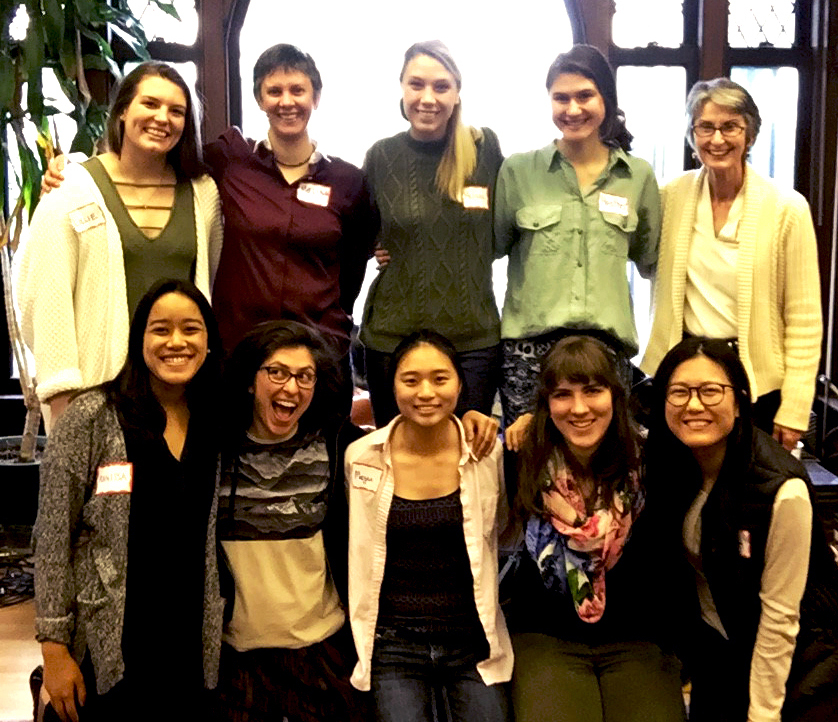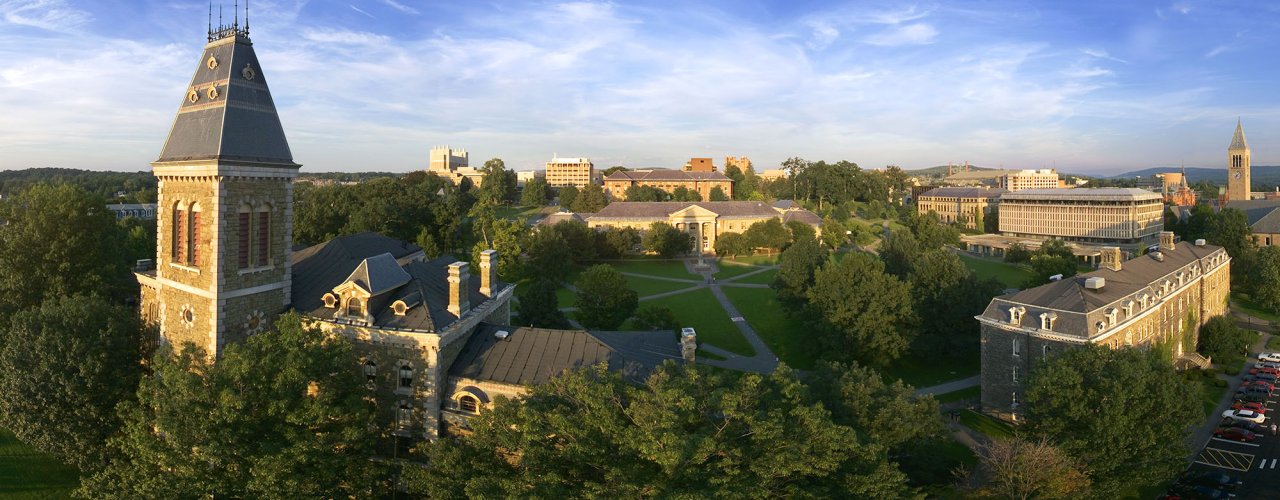Women's Leadership Program
“We’re not just funding students to travel abroad—we’re also training our grantees to be more effective in their international work.”
In summer 2017 eight graduate and professional students are participating in the first-ever Global Cornell Women’s Leadership Program, which is being launched by the Office of the Vice Provost for International Affairs with a grant from the President's Council of Cornell Women.
“We are delighted to support Cornell women graduate and professional students in their international study through our Leadership Fund for Women,” says Jeannette M. Pérez-Rosselló, chair of the President's Council of Cornell Women.
The grant will support the eight women students to travel abroad for meaningful international study and work experiences. The program goals are to enhance leadership opportunities for Cornell’s graduate and professional women and to help prepare grant recipients to be successful in a global context.
The Global Cornell Women’s Leadership Program focuses on developing intercultural and leadership competencies. All grantees participate in leadership training in advance of their travel abroad.
“The program empowers young women by introducing them to their peers in different disciplines—encouraging them to learn from one another and from expert mentors,” says Laura Spitz, vice provost for international affairs. “We’re not just funding students to travel abroad—we’re also training our grantees to be more effective in their international work.”
On May 5–6, 2017, the grantees attended a training to help them prepare for their upcoming international experiences. Pamela LoRusso Strausser, senior consultant in Academic Human Resources, and Melina Draper, teaching support specialist for internationalizing the curriculum in the Center for Teaching Excellence, conducted the session.
Draper, who facilitates workshops and institutes to advance global awareness and intercultural competence at Cornell, says this training was one of “the top most meaningful things I’ve done at Cornell since I arrived in fall of 2012.”
“At the end of the training, several participants thanked us for providing a space for them to work together, outside their usual contexts,” says Draper. “Pam Strausser and I watched over the two-day training as the participants became a cohort committed to supporting one another during the summer and beyond.”
The Global Cornell Women’s Leadership Program is open to non-research master’s students in the College of Human Ecology; the College of Architecture, Art, and Planning; the College of Engineering; and other graduate programs across campus, as well as to students in Cornell’s professional schools. These students are not always eligible for travel grants offered through units such as the Graduate School and the Mario Einaudi Center for International Studies.
“The funding we received from the President's Council of Cornell Women has enabled us to expand existing travel grant programs,” explains Nishi Dhupa, associate vice provost for international affairs. “Our goal was to recruit a diverse pool of women students from Cornell’s graduate and professional schools, and we are pleased that our grantees reflect a cross-section of campus.”

Participants in the 2017 Global Cornell Women’s Leadership Program
The 2017 Global Cornell Women’s Leadership Program participants, selected by their respective colleges and schools, are:
Ranissa Adityavarman, Cornell Institute for Public Affairs in the College of Human Ecology, who will work as an intern for the U.S. Department of State in the Political and Economic divisions of the U.S. Embassy in Canberra, Australia.
Enkhzul Altangerel, Cornell Institute for Public Affairs in the College of Human Ecology, who will work as a communications intern with the U.N. Development Program, in the Regional Bureau for Europe and the Commonwealth of Independent States, in Istanbul, Turkey.
Lillian Gabreski, Cornell Institute for Public Affairs in the College of Human Ecology, who will travel to Cape Town, South Africa, to work on a corporate social responsibility project for Eventerprise, oversee company publications, and research international law, policies, and governance structures.
Heather Guetterman, Division of Nutritional Sciences, who will pilot and validate a mobile diagnostic platform for assessment of vitamin B12 status, using archived blood samples, in Bangalore, India, under the direction of Julia Finkelstein, Cornell assistant professor of epidemiology and nutrition, College of Human Ecology.
Melissa Hanson, College of Veterinary Medicine, who will partner with the Jane Goodall Institute at the Tchimpounga Sanctuary in the Republic of Congo to develop and test reintroduction protocols for some chimpanzees to eventually be released into the wild.
Leanne Jankelunas, College of Veterinary Medicine, who will participate in a study to analyze live-bird markets and processing centers in Ghana to better understand the risks of spreading avian influenza.
Megan Lee, College of Veterinary Medicine, who will research diseases affecting livestock living in the Queen Elizabeth National Park in Uganda in order to improve food security and financial stability for rural farm communities.
Marisa Turesky, City and Regional Planning in the College of Architecture, Art, and Planning, who will study gender-inclusive models of land-use planning in two communities in the United Kingdom, with the intention to develop best practices for American town planning.
Story by Linda Copman, Global Cornell; photography courtesy of Melina Draper, Center for Teaching Excellence

